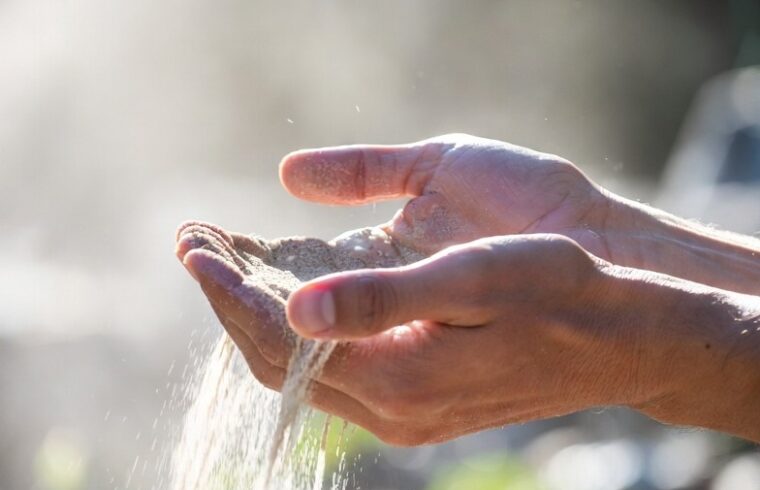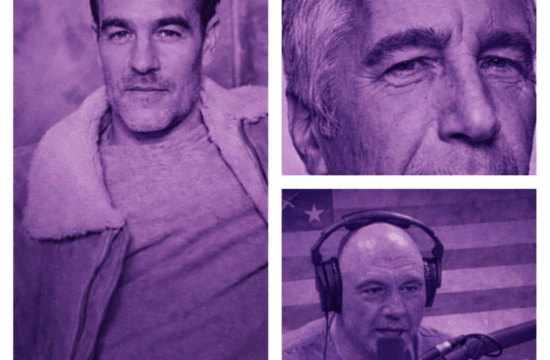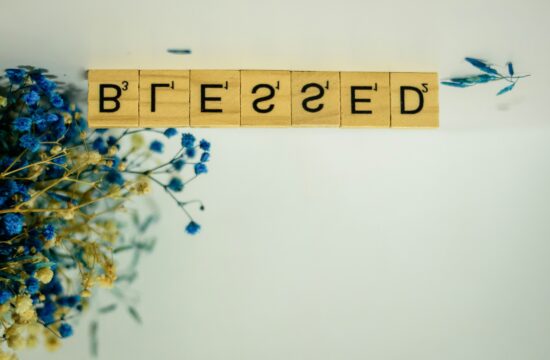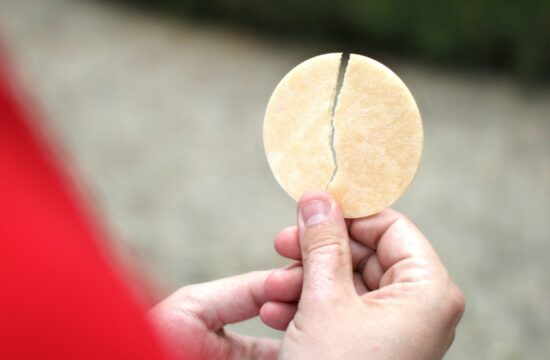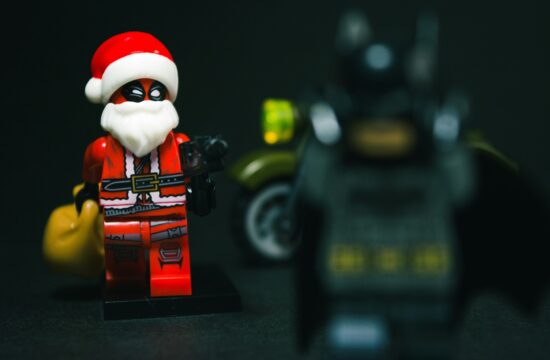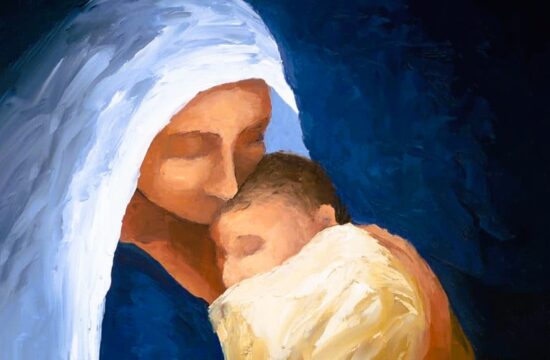How many times have you paused lately and thought, “Wow, life changes way too fast?” For kids, it’s seeing their favorite game, show, or snack disappear without warning. Young adults have watched social media apps explode and vanish in a blink. Parents have watched the music, malls, and stores of their youth fade almost overnight. And for our seniors—how often have you driven by a vacant lot and remembered the store, school, or family home that used to stand there?
Sometimes the changes are tiny: the silence where a landline once rang, the “ping” of a text replacing a handwritten letter, family photos appearing instantly—no film, no album, just a swipe and they’re gone. Other times, it’s bigger: a beloved diner closing, or the neighbor you thought you’d always see moving away. We used to rush home to catch one favorite TV show—now, with endless choices, what we watch seems somehow more fleeting than ever.
Thank you for taking the time to read this homily for the 33rd SUNDAY IN ORDINARY TIME (November 16, 2025). Your support means a great deal to me, and I’m deeply grateful for the many who share these messages with their friends, families and social media followers. If you’ve found meaning in these words, I’d be grateful if you’d share them with others who might benefit.
And for those who prefer listening, you can find the audio version on SoundCloud HERE or subscribe to the podcast on iTunes HERE. Your comments, messages, and the way you’ve embraced these homilies continue to inspire me. Sincerely in Christ -Father Jim
Change sneaks up on us. Younger generations can’t imagine renting a movie, unfolding a paper map, or waiting weeks for news to find its way to your door. Their “normal” is totally different. But nothing lasts as long as any of us expect—a favorite YouTuber leaves, an app gets replaced, a video game world shuts down without warning.
No matter how old you are, you’ve probably felt some whiplash from how quickly things change—your circle of friends, the street you grew up on, even your work or your rhythms. Five years ago, you might have had different dreams, different burdens, even a different place at the family table. And even the “family dinner”—once a nightly ritual—can become rare, as busy schedules and distance pull everyone different ways.
When something is embedded in your life—a place, a habit, a community—it’s easy to think it’s permanent. But sooner or later, even the most “guaranteed” things can fade.
It isn’t just technology or trends. Open the news: we see financial crises, unpredictable weather, job losses, even pandemics that shut down the whole world. Some worry about college costs, others about mortgages, others about Social Security. We worry about our families’ futures, our country, the world we leave to our kids and grandkids.
But this isn’t just a modern story—it’s the very scene of today’s Gospel. In Jesus’ day, people clung to the Temple in Jerusalem. That building was more than stones. To them, it was proof—God’s presence, unshakable and permanent—right at the heart of their faith and lives. “Look at these stones!” they say, marveling at size and beauty. Surely, something this strong would last forever.
But Jesus tells the crowd that even the Temple—along with all their certainty—will fall. “All that you see here—the days will come when not one stone will be left upon another.” How could anyone take that in? The Temple meant lifeblood, identity, proof of God among them. Their whole social world felt like it was on the edge.
And if you listen closely, that edge is familiar to us, too—these days when nothing seems guaranteed.
The disciples panic, as any of us would: “When? What will the signs be?” They want instructions, a plan, some reassurance that they can stay safe. Instead, Jesus offers a different kind of security. He admits that trouble will come—wars, betrayals, even persecutions—but tells them not to be afraid. He offers what sounds almost like a paradox: “By your perseverance you will secure your lives.” Real security doesn’t come from what you can see or hold onto. Perseverance isn’t frantic grasping—it’s a steadfast faith in chaos.
Paul, writing to the Thessalonians in today’s second reading, echoes this. He urges us to keep at the good work of each day—neither panicking nor giving up. And the prophet Malachi in our first reading today gives God’s promise amid the mess: “But for you who fear my name, there will arise the sun of justice with its healing rays.” God’s faithfulness always outshines what’s passing away.
When the ground keeps shifting, our instinct is to want more control—to plan, to work harder, to cling tighter. But scripture calls us to something more radical: trust. Trust that doesn’t depend on us having every answer, but on letting God hold us steady.
That’s why I’ve found myself turning again and again to a devotion called The Surrender Novena. I first discovered it at the height of the pandemic, and it’s become a regular part of my own prayer life. The Novena comes from Don Dolindo Ruotolo—a humble priest and spiritual director to St. Padre Pio—who, in his own times of difficulty, heard Jesus invite him, and all of us, into deeper trust.
In these revelations, Jesus speaks right to the anxious heart. On Day One, He says: “Why do you confuse yourselves by worrying? Leave the care of your affairs to me and everything will be peaceful. … Every act of true, blind, complete surrender to me produces the effect that you desire and resolves all difficult situations.” The prayer that follows is as simple and powerful as it gets—a phrase to breathe, again and again: O Jesus, I surrender myself to you, take care of everything. As the Novena continues, the invitation grows deeper. On Day Two, Jesus says: “Surrender to me does not mean to fret, to be upset, or to lose hope, nor does it mean offering to me a worried prayer asking me to follow you and change your worry into prayer. … It is like the confusion that children feel when they ask their mother to see to their needs, and then try to take care of those needs for themselves so that their childlike efforts get in their mother’s way. Surrender means to placidly close the eyes of the soul, to turn away from thoughts of tribulation and to put yourself in my care, so that only I act, saying, ‘You take care of it.’”
That prayer, I’ve realized, is what Jesus calls us to in today’s Gospel. When the temple falls, when uncertainty shakes our lives, when even faith gets tested—He asks not a passive giving up, but a bold, radical trust. Like a child who finally stops struggling because a loving parent says, “I’ve got you; let me handle it.”
What if we lived like that? What if, each time we felt something precious slipping away, we said with real sincerity: “O Jesus, I surrender myself to you, take care of everything”? What if, in our fear and change, we let ourselves “close the eyes of our soul” and let Him do what we cannot?
There’s a paradox here: “By your perseverance you will secure your lives,” Jesus says—not perseverance in worry or frantic control, but in surrender and steady faith; in stepping forward, hand in hand with God, even when we can’t see the path. Malachi’s “sun of justice” rises not over those with all the answers, but over those who keep their hearts open to God. Paul’s encouragement is just this: stay steady, trust God, do good.
So maybe today, Jesus is inviting each of us—those weighed down by change, grief, or fear for the future—to let go of the urge to control, and instead let Him be our security. To let Him be our temple, our sun, our home, even as everything else shifts.
Take a breath. Name what you’re gripping tightly—the thing you keep trying to fix or protect all on your own. Imagine offering it up, as a child to a loving parent, not just in words but by truly letting go.
Let this be our anchor, our prayer, when the world shakes: O Jesus, I surrender myself to you, take care of everything.
Not just today, but every day, with every change and every challenge. Let’s discover the peace He promises—the real, unshakable peace that the world cannot give… and cannot take away.

